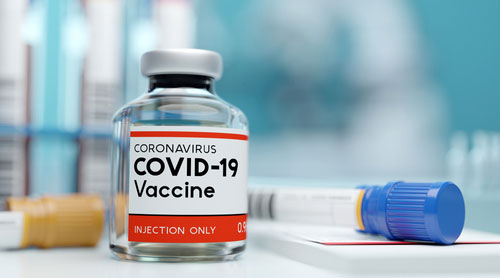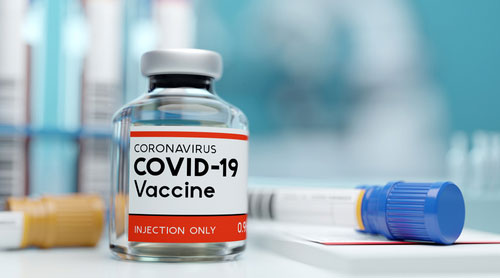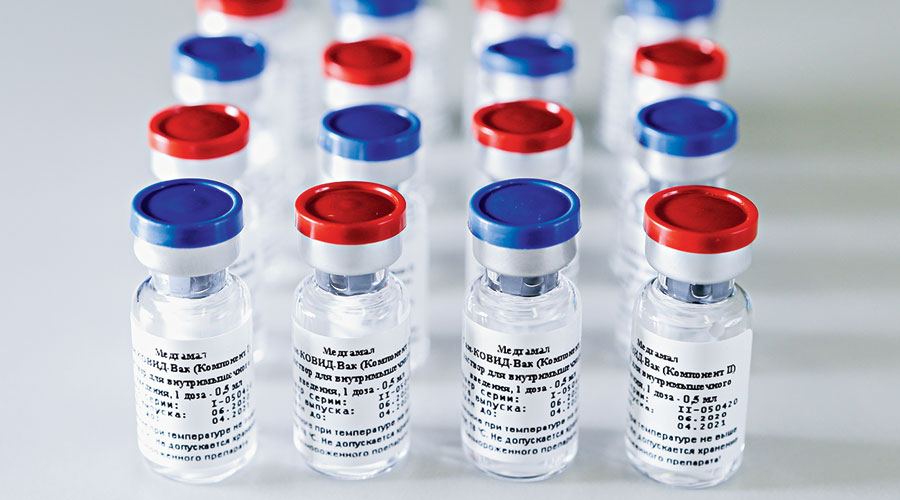A candidate Covid-19 vaccine developed jointly by America’s Pfizer and Germany’s BioNTech is 90 per cent effective in preventing the infection, the companies announced on Monday, bolstering hopes of beating the pandemic that has killed over 1.2 million people worldwide.
Their announcement through a media release represents the first efficacy results from among the 10 vaccine candidates against Covid-19 that are currently under human trial, scientists tracking global vaccine development efforts said.
Senior researchers in India described the results as surprising and game-changing, stressing that such high efficacy levels were on a par with those of vaccines used in childhood immunisation, for instance, against measles.
But they cautioned that its requirement of storage at ultra-low temperatures — below minus 80°C — and anticipated costs could pose challenges for India.
Pfizer and BioNTech, releasing the first interim efficacy analysis, said their vaccine candidate had been found to be “more than 90 per cent effective” in preventing the disease in volunteers without evidence of prior infection with SARS-CoV-2, the coronavirus that causes Covid-19.
The analysis evaluated 94 confirmed Covid-19 patients among the 43,538 volunteers in the trial. The case split — eight among vaccine recipients, 84 among non-recipients — indicates a vaccine efficacy rate above 90 per cent at seven days after the second dose of the two-dose vaccine.
“Today is a great day for science and humanity,” Pfizer chairman and chief executive Albert Bourla said in a statement. “The first set of results from our phase 3 (efficacy) Covid-19 vaccine trial provides the initial evidence of our vaccine’s ability to prevent Covid-19.”
Bourla added: “We are a significant step closer to providing people around the world with a much-needed breakthrough to help bring an end to this global health crisis.”
The findings will be discussed with regulatory authorities worldwide, the companies said.
A data monitoring panel overseeing the trial has not reported any serious safety concerns and the trial will continue to collect more safety and efficacy data, the companies said.
The trial results suggest that protection is achieved 28 days after the start of the vaccination schedule.
The trial will continue until a final analysis when 164 confirmed Covid-19 cases have emerged, the companies said. The study will evaluate the candidate’s potential to protect people from Covid-19 as well as prevent severe Covid-19 disease.
“This is very good, very promising,” Gagandeep Kang, a senior microbiologist and vaccine science expert at the Christian Medical College, Vellore, told The Telegraph.
The three key questions for any vaccine candidate are, Kang said, whether it can prevent infection, the disease and transmission. The primary endpoint for measuring the candidate’s efficacy in this case was a confirmed Covid-19 diagnosis and at least one of several symptoms associated with the infection.
The companies said they expected to produce globally up to 50 million vaccine doses in 2020 and up to 1.3 billion doses during 2021.
Scientists said it was too early to speculate about any implications for India. The Pfizer-BioNTech candidate is an RNA vaccine — crafted from genetic material called RNA — and is expected to be relatively expensive apart from requiring ultra-cold storage.
“Once thawed, it can be kept refrigerated for only a maximum of two days. This would pose a serious distribution challenge for countries such as India,” said Shahid Jameel, a senior virologist and director of the Trivedi School of Biosciences at India’s Ashoka University.
Scientists expect regulatory authorities to assess the vaccine only next month, by when more data may have been generated.
The analysis released on Monday covered the seven days after the second dose. But US and European drug regulatory authorities have sought safety data for up to two months of follow-up, Jameel said.
The companies anticipate the regulatory milestones to be reached in the third week of November. After that, the data monitoring panel could be expected to do another analysis, Jameel said.













